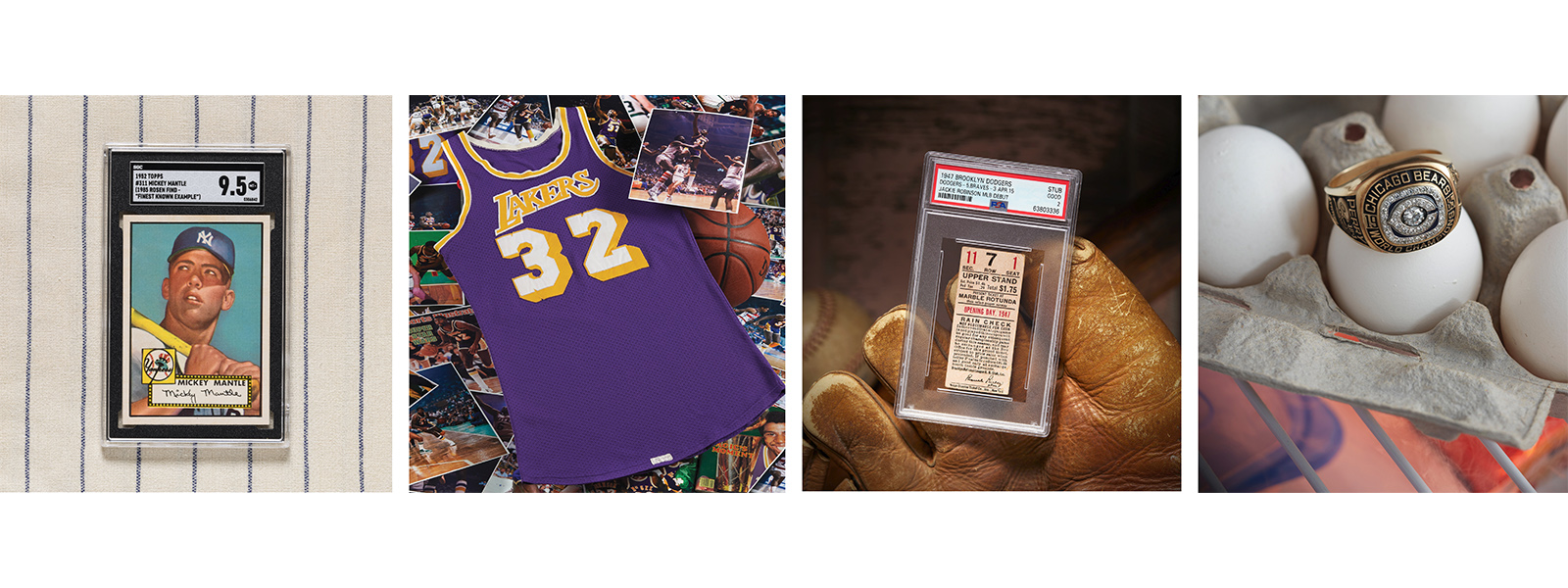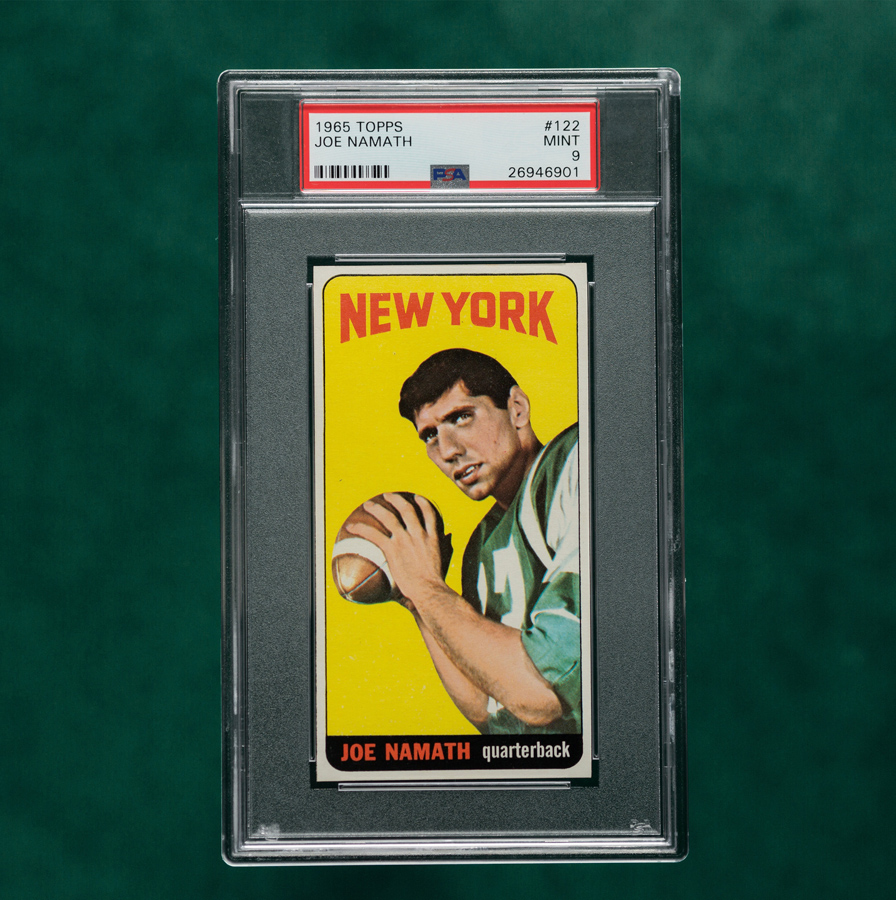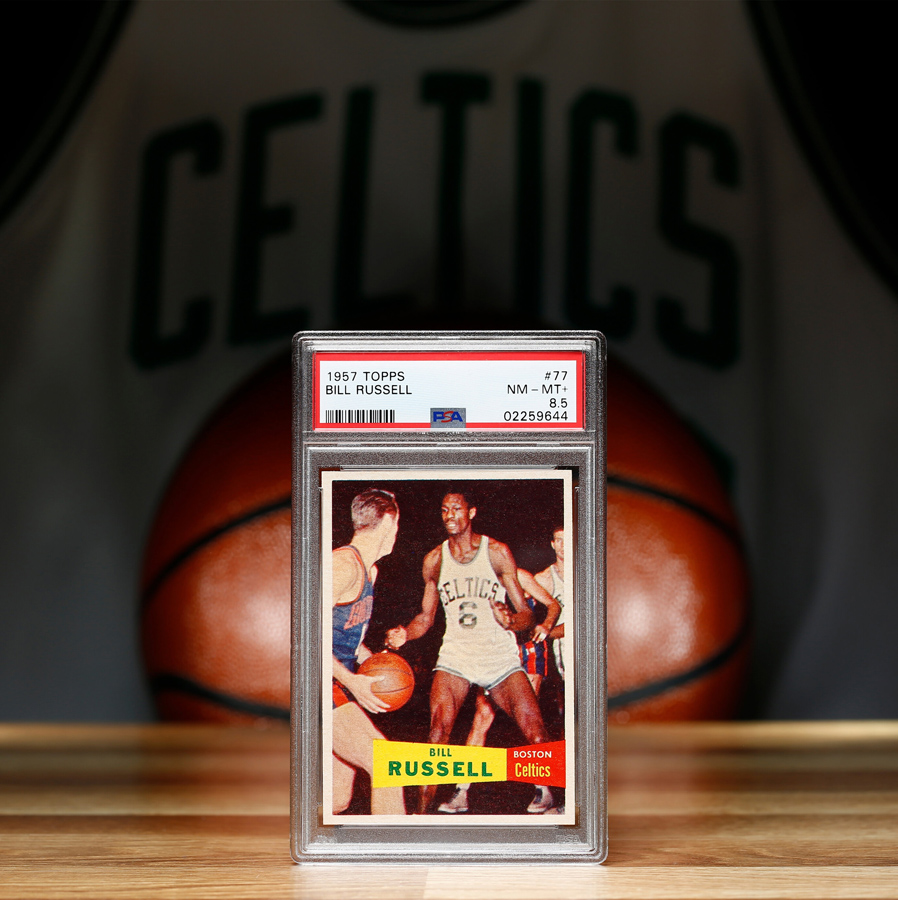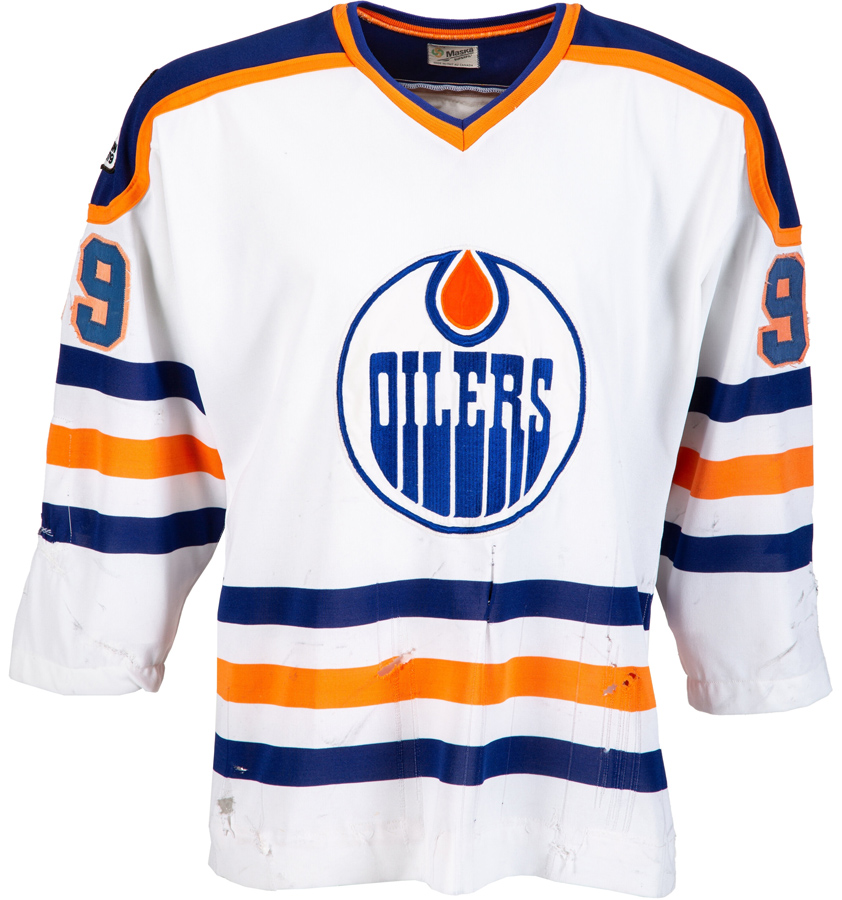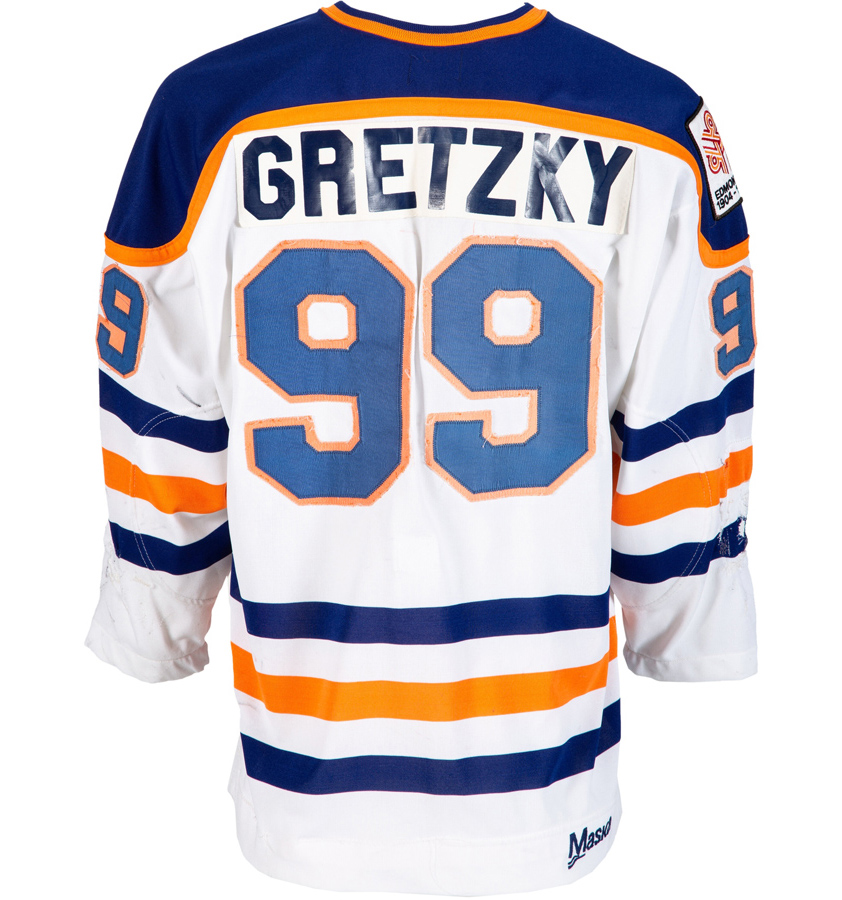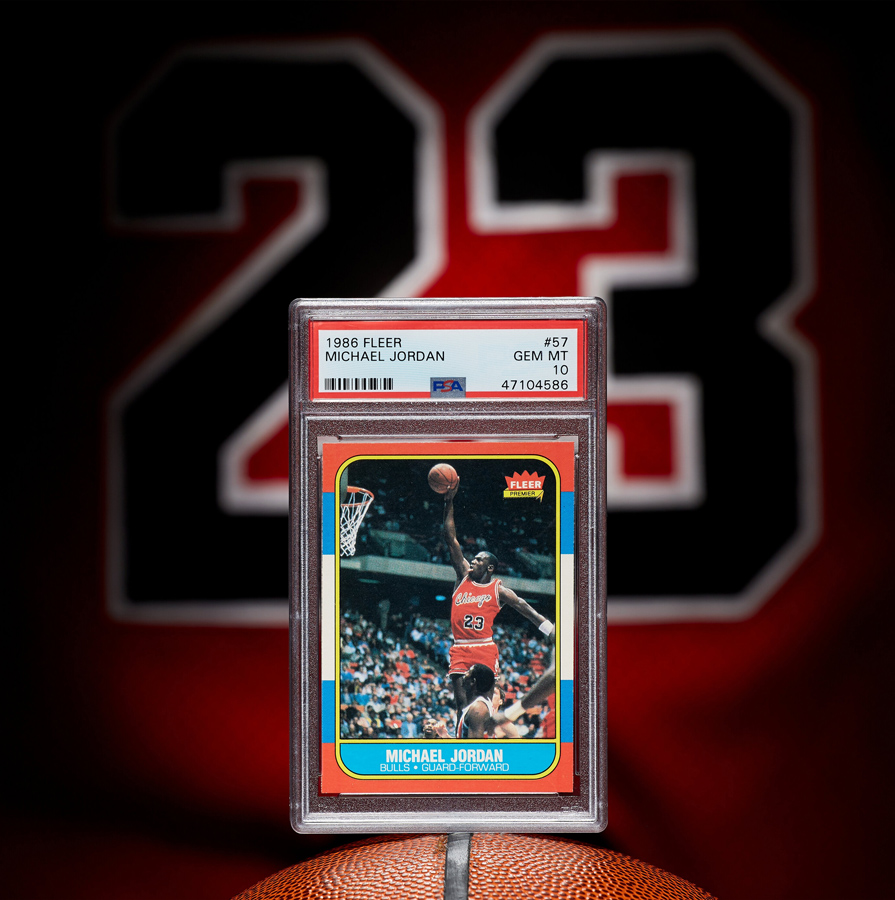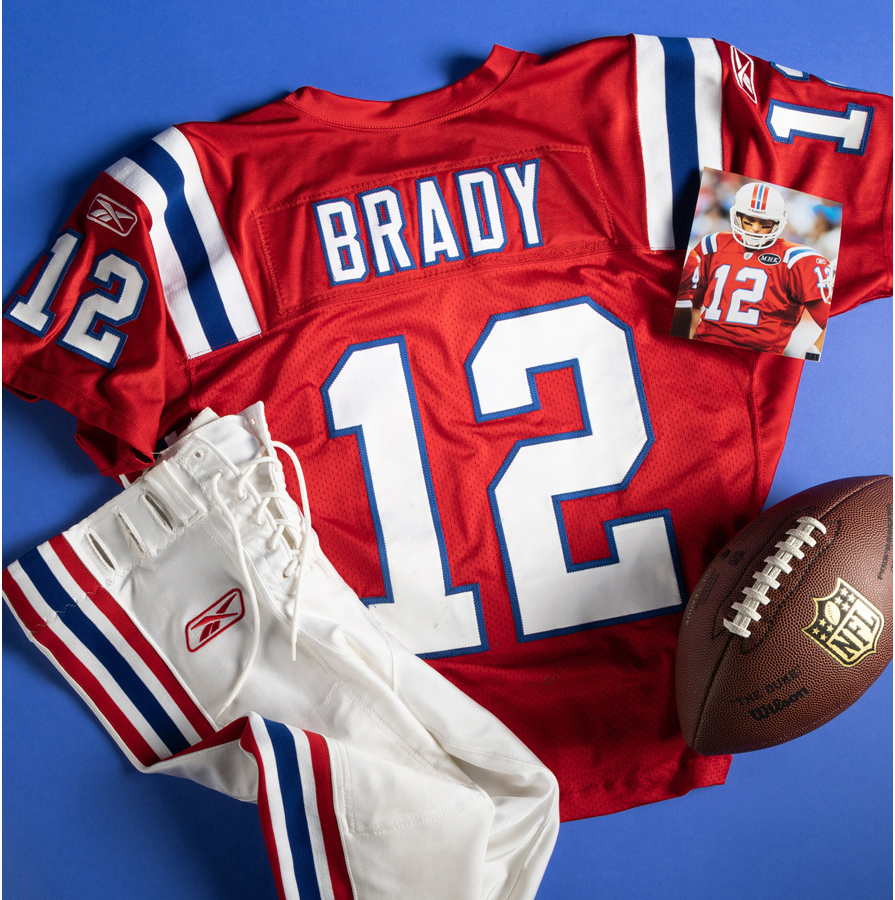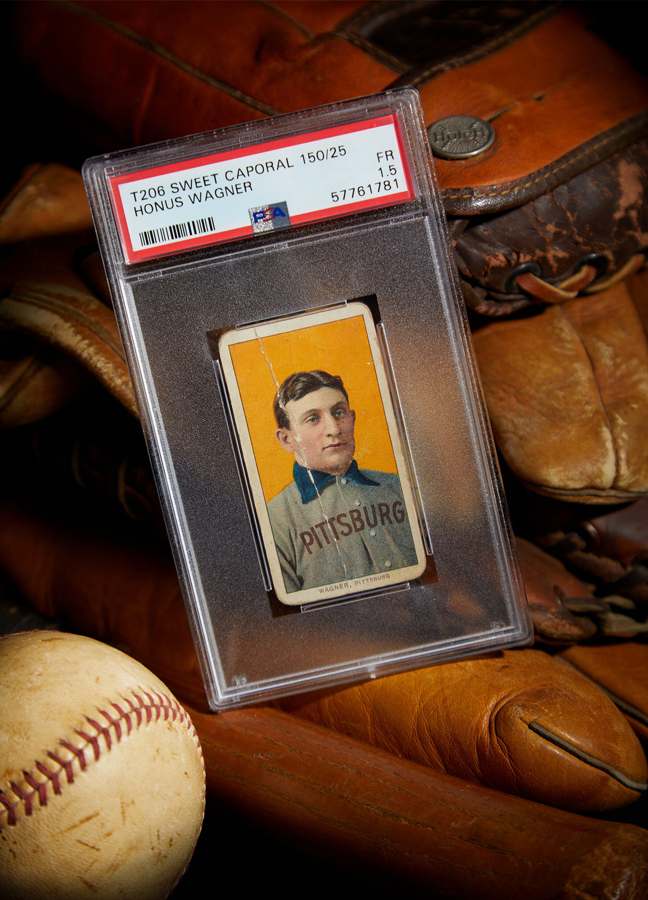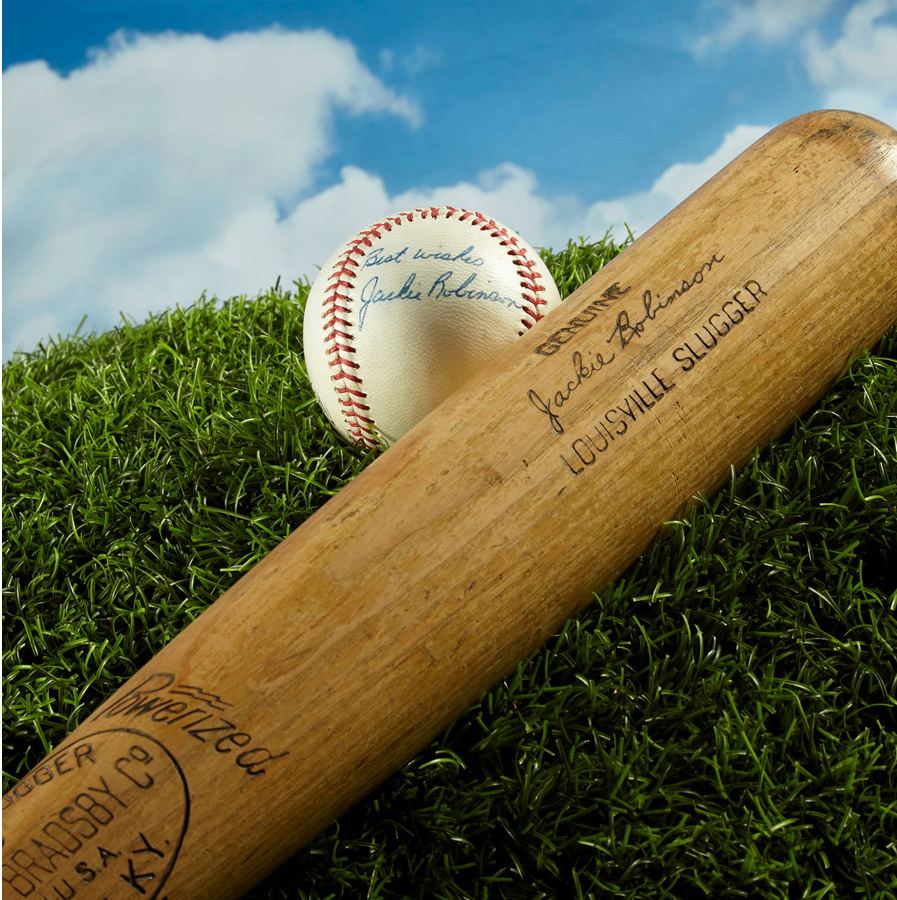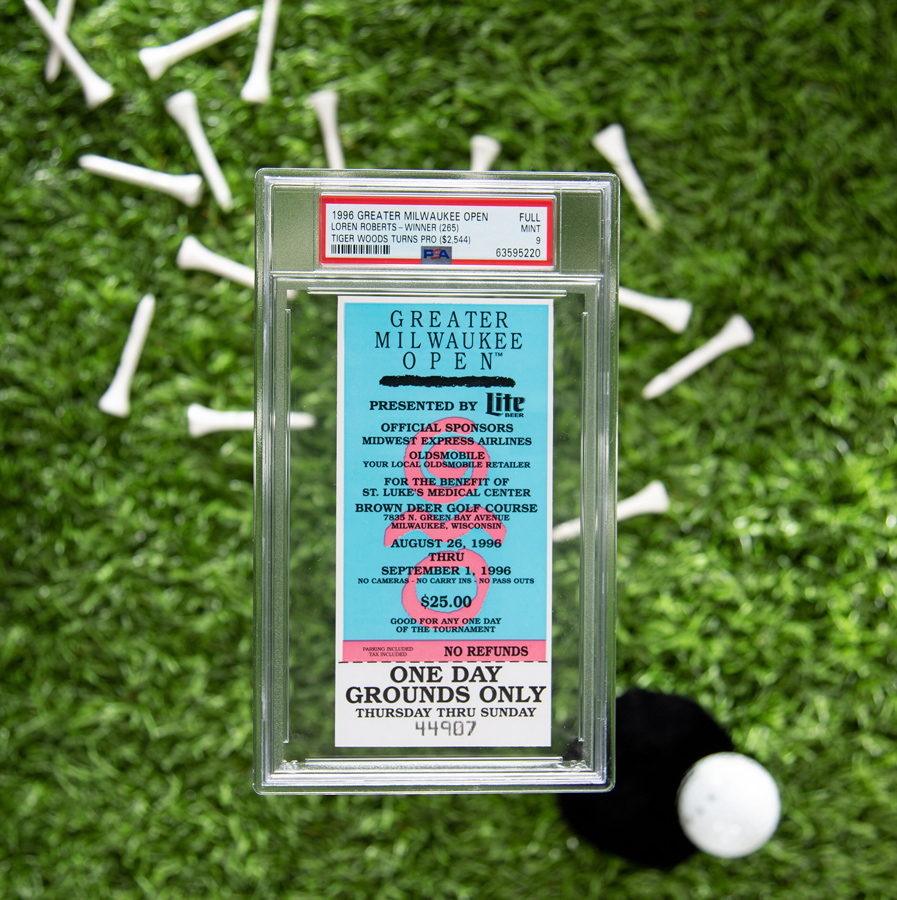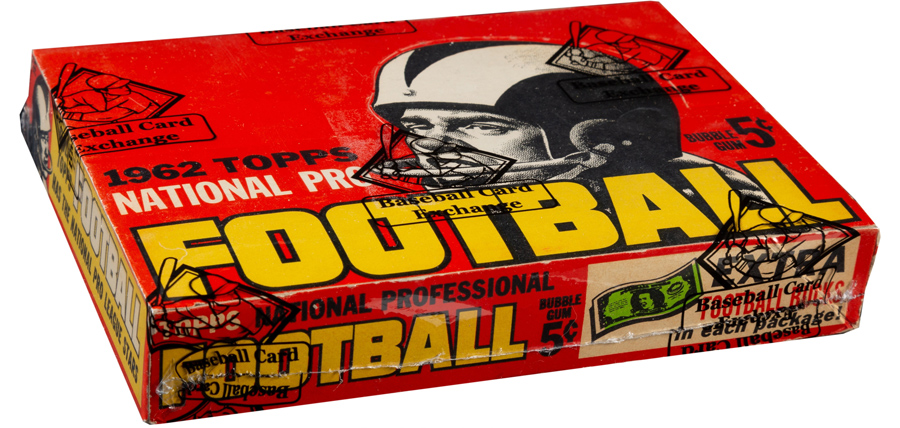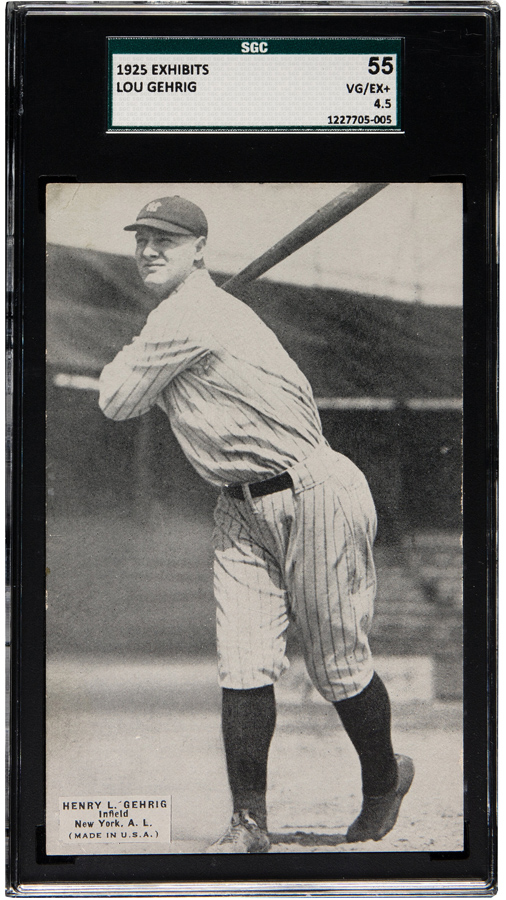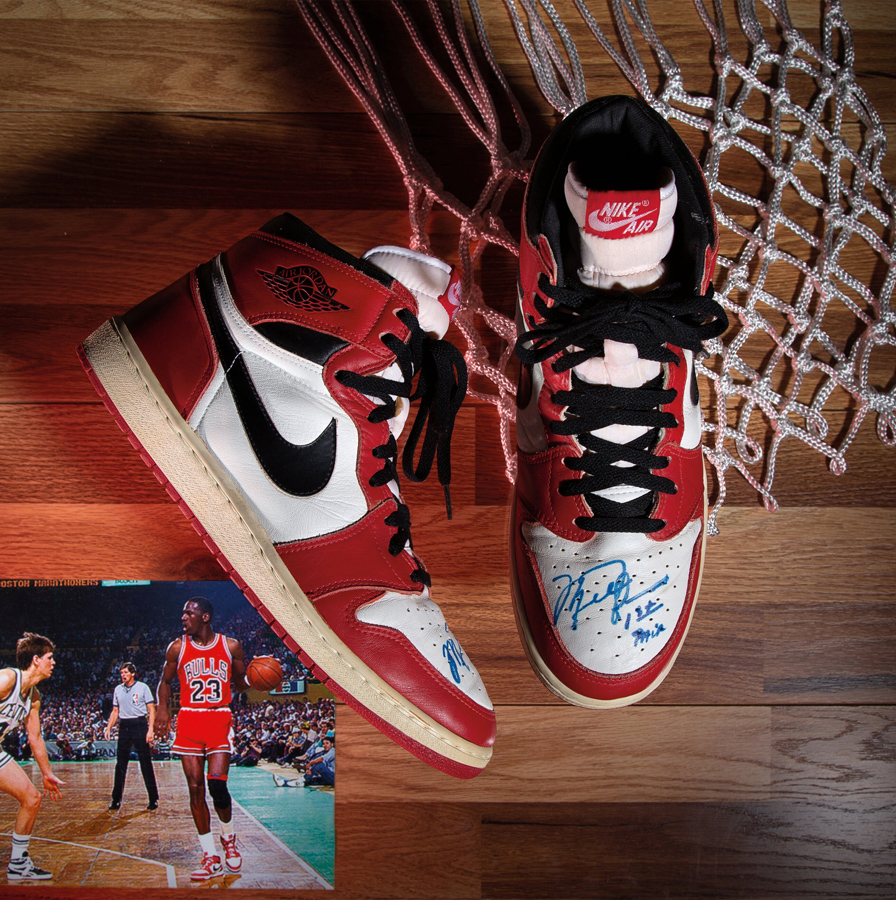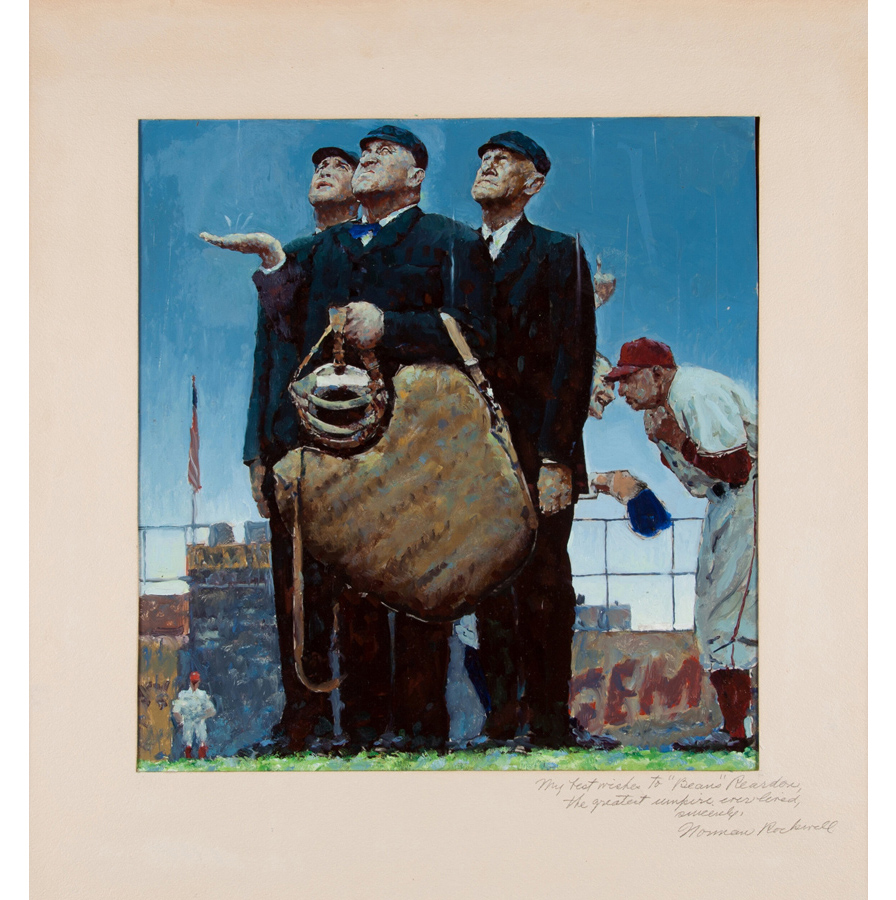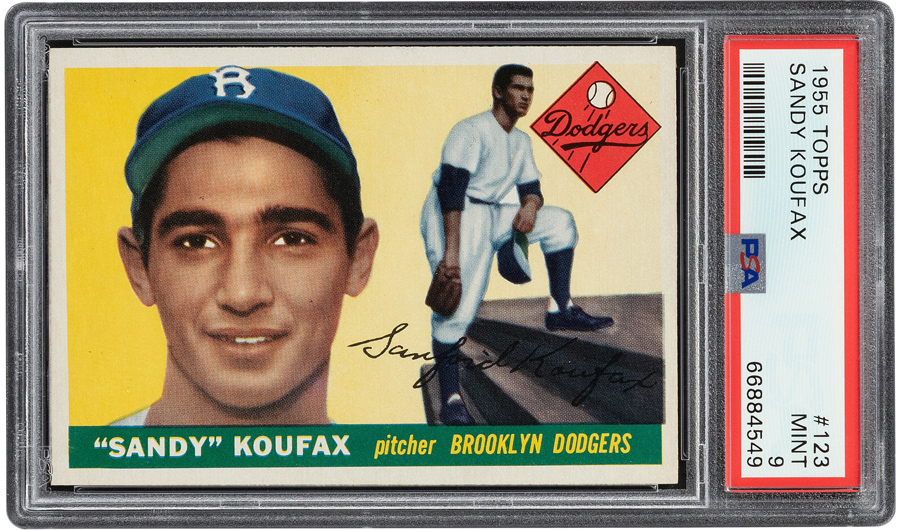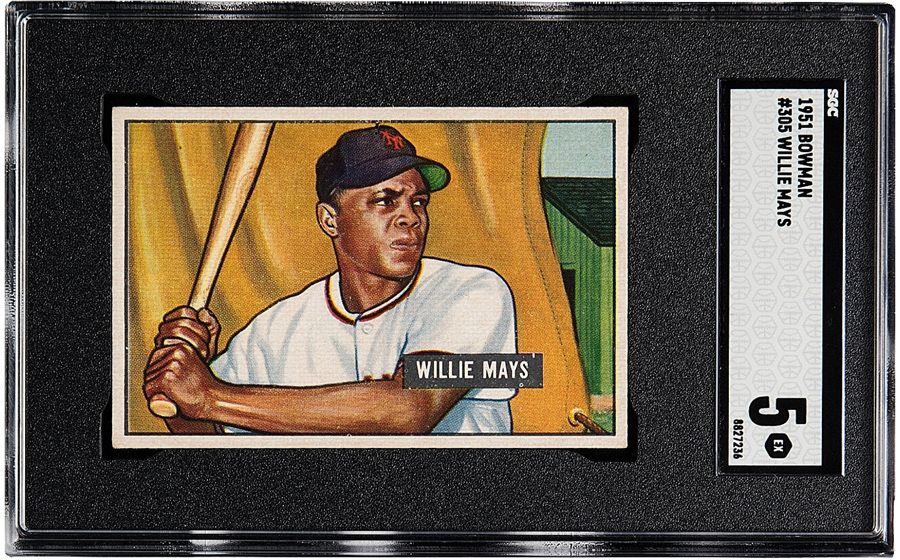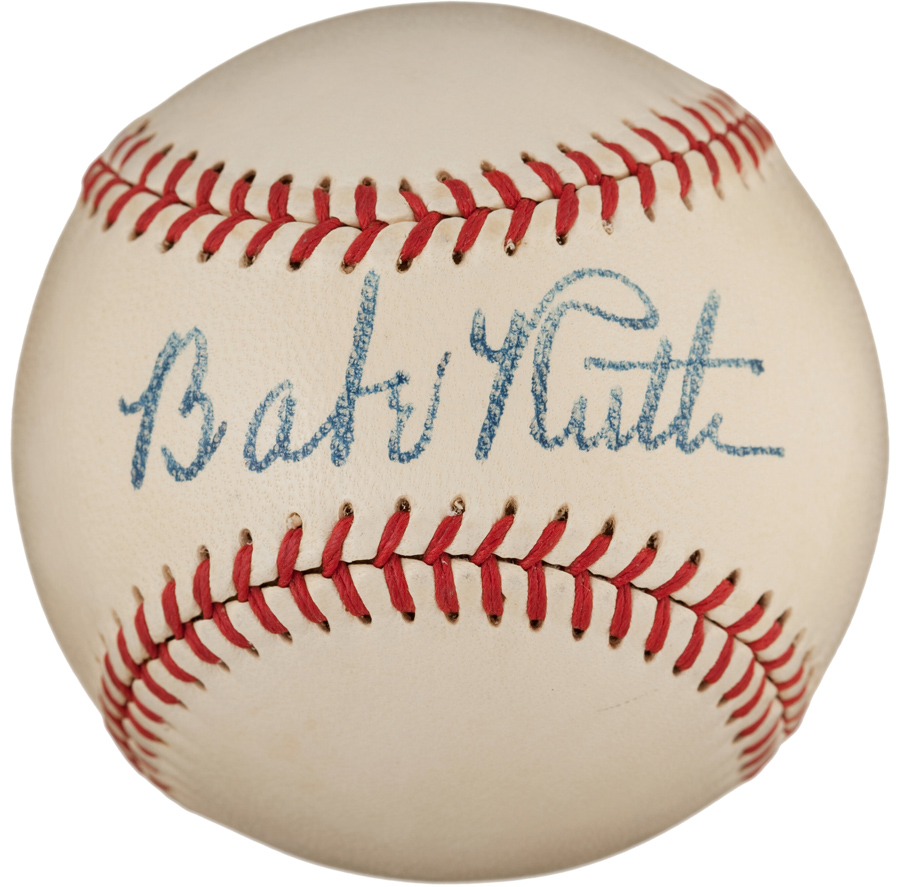BEFORE YOU BEGIN BUILDING, MASTER THE BASICS WITH THESE 10 TIPS
By Joe Orlando
The sports collectibles hobby, while unquestionably fun, is also a serious business. In recent years, the industry has experienced explosive growth, and prices, in some cases, have soared as a result. Part of our mission is to provide educational content to help participants, especially new ones, have a more rewarding overall experience.
This guide provides 10 tips for collecting sports collectibles, from trading cards to various memorabilia categories. Whether you are a total novice or a seasoned veteran, these core principles remain tried and true. We hope this foundation and framework will prove helpful in your collecting journey.
Enlarge
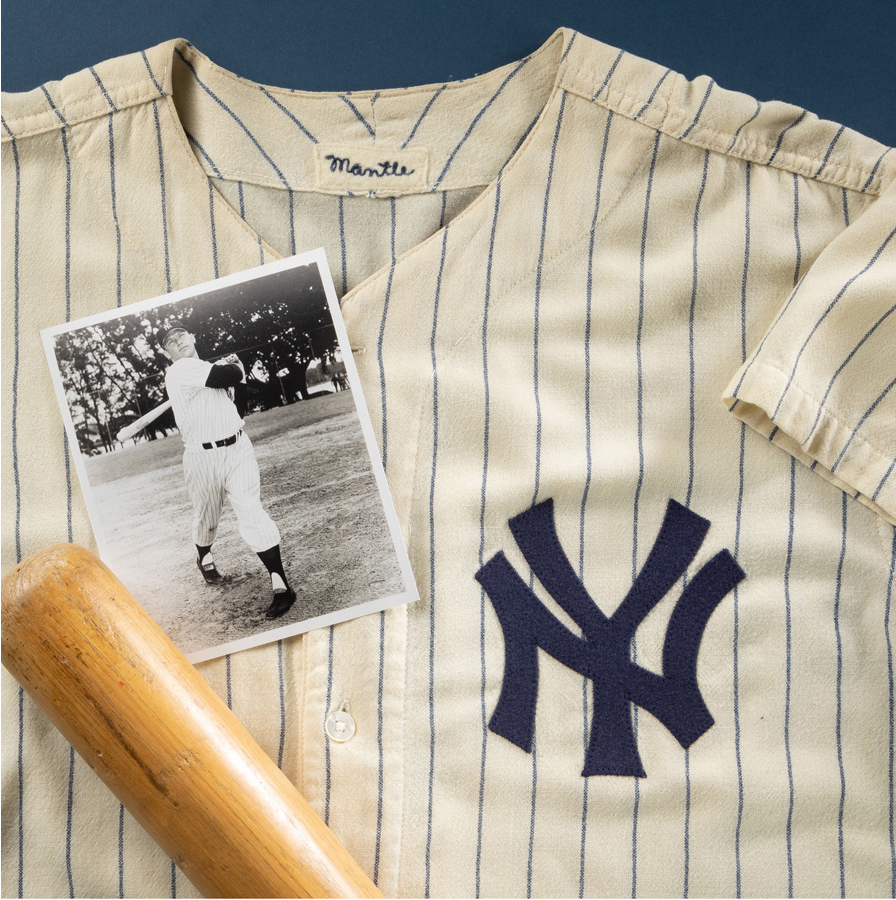
1. An Informed Buyer Is a Happier, More Confident Collector
Once you have decided to venture into the collectibles world, take the time to educate yourself as much as you can before you start spending your hard-earned money.
First, do not be afraid to ask questions, especially to those who have more experience than you do in a specific field. Veteran hobbyists and experts are often more than willing to help act as a mentor. Be a sponge and learn from them. They can help you take advantage of great opportunities and avoid missteps along the way. There are also plenty of excellent resources available to help you become a confident buyer. Many of them are free. Numerous websites offer abundant online content, varying in quality and depth.
Remember that no one person knows it all because there is so much to learn in this vast space, but information is power in the world of collecting like everywhere else.
Key takeaway: It takes time to become well-versed in a particular field, but it is worth every bit of the effort and wait.
2. Reputable Authentication and Grading Is a Must
During the past three decades, the market for sports collectibles has evolved dramatically. One area that has changed forever is the demand for third-party authentication and grading, especially regarding high-value items. This kind of certification provides the necessary foundation for structure in the market, enhanced liquidity and peace of mind buyers crave. Much of the work is done for the prospective buyer once the item is adequately identified and evaluated by the third-party service.
While grading might not answer every question or address all the factors that can impact value, it helps place your item in the proper context. Buyers have a much better idea of what they are getting at the point of sale with certification than without it. Your job is to become familiar with the variety of certification services and brands in their relevant fields because resale value is paramount. Not every brand has the same level of respect, reputation or reach, and the power of each brand can change over time.
Key takeaway: The certified world helps provide a safer and more efficient environment for buying, selling and trading.
1979-80 Wayne Gretzky game-worn Edmonton Oilers rookie jersey photo-matched to his first NHL home game
3. Buy the Best Quality You Can Afford
While everyone has a different level of spending power, most astute veteran collectors would advise you to pursue and purchase the best your budget will allow for. Of course, this is a relative exercise since budgets can vary greatly, but the principle applies at every price point and in virtually every kind of market. There are never any guarantees that items will increase in value, but the best of the best tends to outperform the rest over time. High-quality items are also less susceptible to significant declines when the general market takes a turn for the worse.
Attributes such as popularity, scarcity, condition, eye appeal, provenance, name recognition, historical importance and more can all come into play depending on the collectible type. By nature, collectors often desire the objects that few others or no one else can claim to own. Pride of ownership is a significant factor for buyers at every level of collecting.
Knowing that, the more your collectibles can be linked to exclusive company, the better. The collectibles near the top of want lists tend to stay there no matter if the overall market is hot or soft. Collectibles of this quality are also the type you can look at each day and be completely satisfied with, which provides the kind of value that is hard to quantify.
Key takeaway: Collecting offers much more than monetary returns, but focusing on quality can often lead to better financial rewards and personal satisfaction.
Enlarge
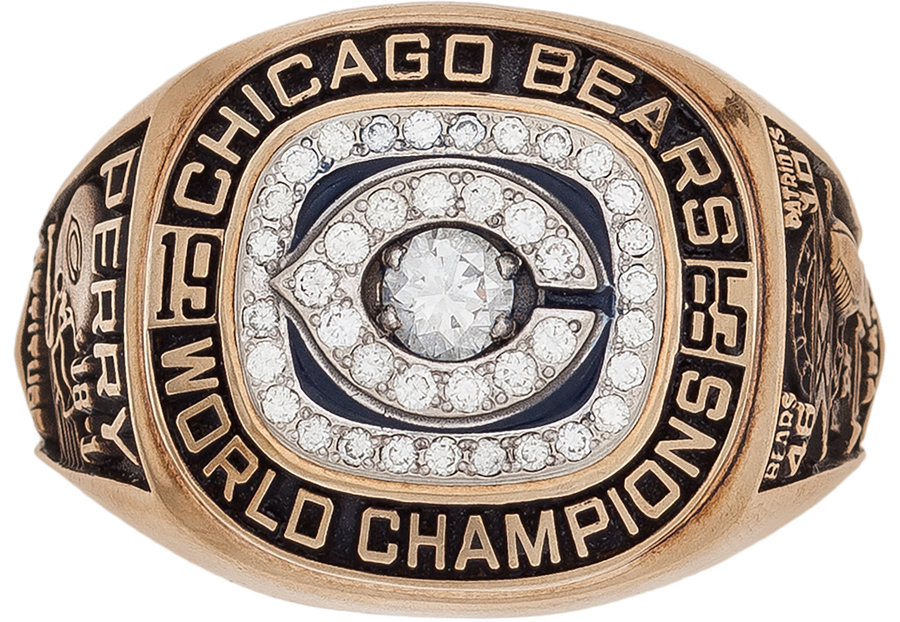
4. Engage With Reputable Auction Houses, Dealers and Marketplaces
As a buyer or a seller, you have a lot of choices. While identifying reputable third-party authentication and grading services and educating yourself about the collectibles themselves are clear priorities, this subject is of extreme importance as well. A company that has earned a good reputation is motivated to preserve it, which often directly correlates to how its customers are treated.
It is not only about establishing trusted relationships for transacting purposes. It is also about building a rapport with those who can assist you in other ways during your collecting journey. Often, the individuals you converse with can help navigate you through various stages of your hobby life. Having access to their knowledge and expertise is invaluable.
People are drawn to the hobby because of the vast selection of fascinating collectibles they can buy, but they stay for the total experience. The people we choose to engage with can impact our experience. The value of these relationships goes beyond dollars and cents. It is about finding allies to help guide you and add value when a deal is not on the table.
Key takeaway: The people you meet along the way are often just as important as the items you pursue.
5. GOATs and Grails Are Often the ‘Blue Chips’ of the Hobby
Collecting is a very personal endeavor. In simple terms, collectors buy what they like. One reason the market has persevered during challenging times is the connection people feel to it and their passion for it. A desire that extends far beyond monetary value keeps them going through thick and thin.
That said, if you are concerned with the future value of the items, you must consider what most others like, too. When it comes time to sell or trade, you want to ensure the market is as strong and broad as possible for optimum liquidity. Tip No. 5 should be on your radar if the financial commitment becomes increasingly material.
The tests for identifying “GOATs” and Grails are different, with no perfect definitions. GOATs are the legends of the sport, the athletes whose statues appear outside stadiums and the names the average person at a neighborhood barbecue would recognize, sometimes by first or last name only.
There are levels within GOAT status as well. The top tier contains the icons that transcend sports, from Ruth to Ali, from Jordan to Brady, but the GOAT status we are touching on here is slightly more inclusive. Great weight is also given to the athlete’s popularity. It is not based on achievement alone.
The test for Grails is hobby-centric and slightly more subjective. These collectibles have been universally identified as pinnacle prizes within their specific field. There is no better example of this in the card world than the 1909-11 T206 Honus Wagner.
Yes, there are exceptions to the general rule. Affiliation with legendary teams or iconic moments can propel a collectible to another level, and collector sentiment can change about specific items over time. Still, GOATs and Grails provide the safest place to park your money.
Key takeaway: The names and collectibles consistently found near the top of the demand charts are the wisest choice for prudent buyers.
6. Beware of the Temptation to Become a Bargain Hunter
Collectors love the idea or hope of finding buried treasure. It is part of what makes this hobby fun and exciting because we do not know what is left undiscovered in our world. That said, the reality is that finds of this nature are few and far between. The same can be said of genuinely great deals. The adage “If it sounds too good to be true, it usually is” remains as germane today as ever, especially with the potential amount of money at stake.
We live in the information age, the age of technology, which gives us more access to essential data than ever before. That access will only increase over time, and as arduous as finding a “bargain” is today, the difficulty level should only increase in the future. Though not impossible, the likelihood of obvious value hiding in plain sight evaporates as the playing field continues to be leveled by shared information.
Money always matters, but there is such a thing as being too focused on price. A gauntlet of treacherous traps awaits if a collector falls into that mindset.
Key takeaway: In the world of collectibles, become a savvy buyer, not an overly frugal one.
7. When Opportunity Knocks, Open the Door
Being financially responsible to our families and ourselves is essential as a collector. There is no doubt that staying rational and level-headed in what sometimes is an emotional activity can be a tall task. That said, most experienced hobbyists will tell you they have far more regrets about not taking advantage of buying opportunities than the other way around. In fact, that same group would likely agree that they rarely regret what seemed like overpaying at the time for something of outstanding quality.
Generally, buyers must pay tomorrow’s price for an elite item today. Otherwise, if we allow too much time to pass, the market can get away from us all. Listening to your gut, especially when you feel like you have the requisite knowledge, is a good thing.
When presented with an opportunity, the totality of your experience provides an almost automated, instinctual reaction at that moment. If you are having that kind of positive reaction to a collectible, chances are that others will, too.
Key takeaway: As your palate becomes more refined and buying opportunities are presented, you will know a good one when you see it.
8. Break Free of Preconceived Notions
As you gain collecting experience, one pitfall can be hard to avoid. This pitfall concerns our occasional inability to let go of the past as a buyer. The collectibles market, just like all other markets, is in a constant state of flux. Collector sentiment evolves, which can drive values up or down.
► More Collector’s Guides
For additional collecting advice on topics ranging from fine minerals and rare books to art glass and action figures, visit our dedicated Collector’s Guide page.
Sometimes, the change is slow and steady. Other times, it feels like the collecting public started rowing in the same direction simultaneously. What is important here is that we remind ourselves of that possibility and prevent the buyer inside us from being restricted by how things used to be.
Old data can be more than just old; it can be misleading. It is like looking at a home in an area that has undergone a dramatic makeover. What the home was worth 20 years ago might not be pertinent anymore if the entire surrounding environment is now different. If you get hung up on what the market was like in the past, it might prevent you from buying an enticing home for the future.
The same principle applies to collecting. The potential mental block, especially regarding price, can make even the savviest buyers wish for a time machine. Please pay special attention to trends that appear to have long-lasting effects and be willing to adjust your perspective when the market calls for it. This is not about having a crystal ball because no one can predict the future. It’s about staying alert and malleable so you don’t miss seismic shifts that produce a new normal.
Key takeaway: Collecting experience and historical data can be invaluable, but do not let the past immobilize you as a buyer.
Enlarge
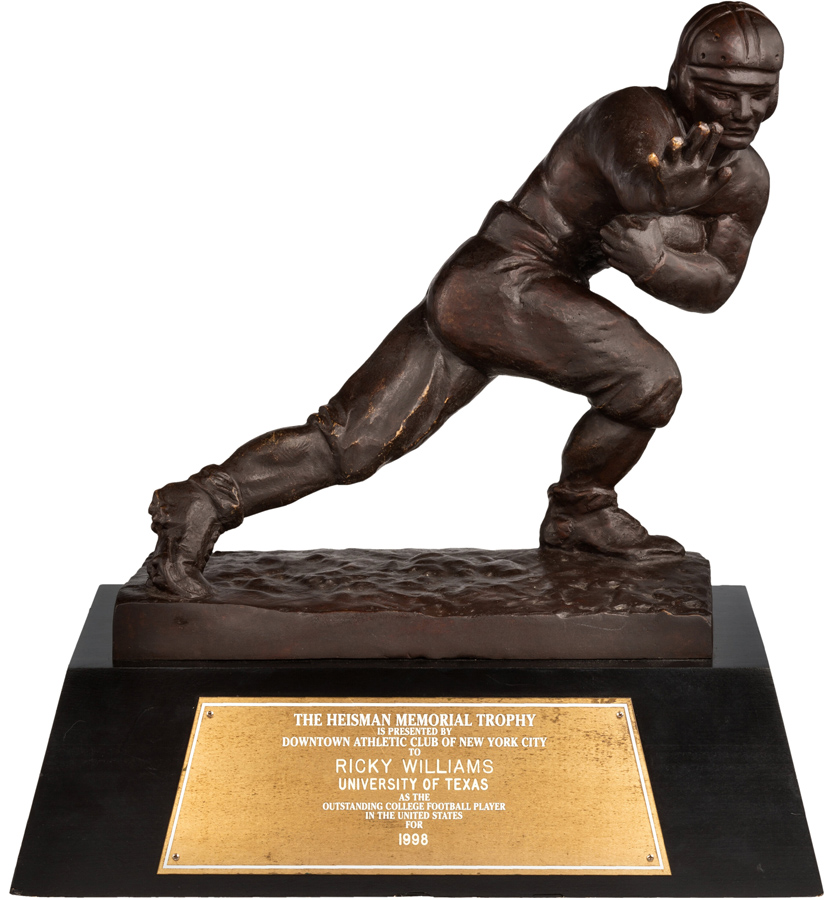
9. Prioritize ‘The Plan’
In boxing, a saying goes a little something like this: “Everyone has a plan until they get hit.” Well, in collecting, everyone has a plan until they start buying. Once you start diving into this hobby, it is quite easy to become unfocused because there are many exciting ways and places to spend your money.
If you have followed the first eight tips, it is time to start asking yourself a host of questions. The more you answer at this stage, the better your collection will be managed after you begin buying. The assortment of subjects might include, but not be limited to, choosing trusted partners; establishing a collection goal; setting a budget; allocating time; and addressing storage, display or insurance concerns if applicable.
There is more than one way to do this. The beauty is that you get to set your own collecting course. Surprisingly, many new buyers fail to address these questions at the outset. The ones who do and are proactive tend to make the path to becoming more efficient and effective collectors shorter.
Key takeaway: Give yourself the gift of direction; it often leads to a better collecting experience.
10. Enjoy All the Hobby Has to Offer
The market for collectibles is simply different from most others. Emotional, sentimental and nostalgic factors can come into play in a way that separates it from most traditional asset classes. Collecting is a way for millions of people to escape the daily grind. It can even be a haven, a place of psychological comfort, during difficult personal or societal times.
The tragic events of 9/11 could not stop it. The 2008 financial crisis could not stop it, and the COVID-19 pandemic just brought more attention to it. The remarkable resilience of the collectibles market has been something to behold. Its ability to endure and even excel in the face of adversity seems to defy logic, yet it makes perfect sense.
Collecting has a special place in the hearts of people worldwide. Why? It is simple. Collecting can be a lot of fun, and there is something gratifying about the combination of hunting, gathering and building, which is at the core of the experience. It connects people from all walks of life and can even provide valuable life lessons. The hobbies people choose are wide-ranging, from fishing to reading to painting, but few offer all the rewarding aspects of the collecting experience.
If it is in your blood and you decide to take this hobby for a spin, remember to take advantage of all it has to offer. From access to history that can be held in your hands to the wonderful people who share your passion, the experience can provide a lifetime of recreation for people of all ages.
Key takeaway: Collecting means different things to different people, but the common denominator should always be enjoyment.
 JOE ORLANDO is Executive Vice President of Sports at Heritage Auctions. He can be reached at JoeO@HA.com or 214.409.1799.
JOE ORLANDO is Executive Vice President of Sports at Heritage Auctions. He can be reached at JoeO@HA.com or 214.409.1799.

